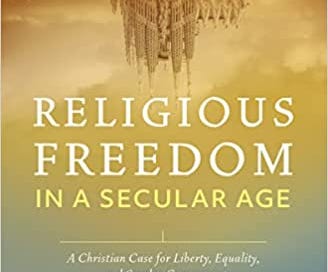Why Religious Freedom Matters!
Many commentators have pointed out that the political left in the UK, Australia, and the USA have mostly abandoned class warfare for identity politics. It is fair to say that Trump’s 2016 win, the UK’s Brexit vote on the same year, and Australian prime minister Scott Morrison’s surprising 2019 election win all show that the working-class constituencies of these three countries, with the support of sizable ethnic minorities, have surprisingly aligned themselves with right-wing parties as a bulwark against the perceived ideological eccentricities of the bohemian bourgeois of the political left.
Many people of various backgrounds and walks of life are alarmed about progressive ideologies that deny the existence of biological women, re-write history, chide those seeking economic mobility, and periodically claim that “blackness” or “gayness” can be forfeited if one does not vote the right way. It is both the seeming alternative reality of progressive ideology and the menacing way in which such beliefs are enforced that creates a climate of fear about creeping progressive authoritarianism.
The danger of progressive authoritarianism is more than big government or corporate wokeness; it is government consciously committed to a radical anthropological project of trying to redefine what it means to be an individual, a family, a woman, or even a religion. And here is the problem. It is apparent that many progressives see in Christianity a moral framework that must be resisted; indeed, traditional Christianity, including its institutions, cultural influence, and moral vision, is the number one enemy that progressives see themselves struggling against. According to Mary Eberstadt, “Progressive activists have a creation narrative all of their own, according to which they are the forces of light, and orthodox Christians the creatures of darkness.” For me, this is evident when one reads nearly any article about religious freedom from the Australian Broadcast Corporation (ABC) or The Guardian-Australia.
Thus, in the end, certain accounts of the progressive political vision amount to what American political philosopher Stephen Macedo calls civic totalism, in which the plenipotentiary state is invested with all power and seeks to regulate as much of public and private life as possible. For many progressives, the health of the state depends on a convergence of private and public values, requiring government to be empowered with the “ability to turn people’s deepest convictions—including their religious beliefs—in directions that are congruent with the ways of a liberal republic”(quote from Macedo).
Consequently, religion within civic totalism is regarded as dangerous since religion ascribes notions of ultimacy to something other than the state and the state’s vision for the public good. Religion creates a competing social vision and an alternative morality, which divides the loyalty of citizens away from the state’s objectives for human conduct, rendering certain forms of religion hostile to the state’s ambitions. In Macedo’s analysis of civic totalism, religion must be taken seriously and a regime must be protected by “a shared account of basic civic values that impose limits on what can be true in the religious sphere.”
I can point to various legal cases, political manifestos, legislation, books and articles that demonstrate a civic totalizing approach to religion from Canada to New Zealand. But here is my point. There is a genuine danger in many western jurisdictions of not abolishing religious freedom, but religious freedoms being narrowly redefined, and relegated to low status in a new hierarchy of rights. Even worse, we risk the danger of a state apparatus where religion is begrudgingly tolerated rather than regarded as a positive contributor to a multi-cultural liberal democracy.
For many, the solution to civic totalism is civil religion, a vaguely Christian leader, armed with sarcastic taunts, a powerful propaganda machine, and state power to attack the instrument of progressive ideology. That, I would argue, is a cure worse than the disease itself.
What we need is neither civic totalism nor civil religion, but a proper secular settlement to ensure freedom of religion and the separation of church and state. But that is a topic for next time!
Pre-order Religious Freedom in a Secular Age here.




